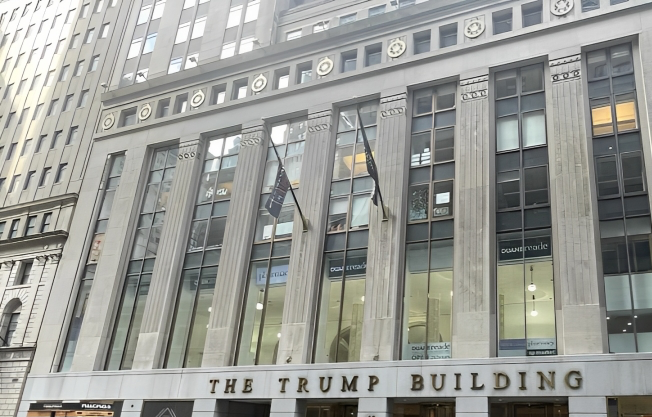Trump’s fate hangs in the balance: Inside the controversial indictment and its potential consequences
Prior to the indictment, the New York police had heightened security measures around the Trump Tower and the criminal court by erecting barricades.
On March 30, a Manhattan grand jury indicted former President Donald Trump for an alleged scandal and 34 charges on falsifying business records. Trump pleaded innocent for all these criminal charges, denying any wrongdoings.
After approximately 150 years, Trump has become the second president to be placed under arrest and first to be criminally charged. When he entered the Manhattan Criminal Courthouse to attend his arraignment, his experience differed from the typical procedure: with no handcuffs or mugshots.
“[Trump’s arraignment] is significant in that it shows our dedication to the rule of law and the principle that no one is above the law. This has been disregarded in the past with former President Richard Nixon – who has broken the law and did not suffer any investigation,” said US History Teacher Tyler Rust.
Upon his arrival in Florida, Trump publicly refuted the allegations, claiming that no crime had been committed and that the case was unjustly handled, while also accusing Democrats of conducting a politically motivated witch-hunt. Former vice president Mike Pence, amongst other Republican elected officials, spoke in agreement with Trump, labeling the indictment as an “outrage.”
“It will either boost Trump’s platform if he runs again, in the sense that it will add fuel to the fire of his committed voter base. Or, it will give more credence to other Republican candidates such as Ron Desantis. Unless he is charged with a crime of interfering with the election, it will not prevent him from running,” said AP Civics Student Hadeel Boufarhat (‘23).
In addition, there has been some controversy regarding the extent to which media outlets have politicized the event. For example, a CNN poll showcased how 50% of Americans believe that politics have played a major role in Trump’s indictment and how the dynamics of the event have been portrayed.
“There is a difference between what the public thinks and what the law does. It is a common mistake that a lot of people have in thinking that the law should conform to what the public believes,” said Rust.
In recent times, there have been several viral examples of realistic AI-generated images. This includes fake images of Trump getting arrested, receiving millions of views across different social media platforms.
“Social media is where you can see a lot more misinformation. Specifically, Tiktok has been recorded to have a radicalization problem. It shows people more extreme political views and leads people to extreme views,” said Boufarhat.
During this time of unprecedented political polarization in the US, differing media outlets approached Trump’s indictment distinctly and voiced different sentiments (leading to bias).
“The media is supposed to be non-partisan. Unfortunately, these days, a lot of the media is partisan. Traditional media is becoming more like social media, they try to cater [the way in which news is depicted] to their audience,” said AP World Student Shaurya Shrivastava (‘25).
In addition to the federal investigation on mishandling classified documents and the Georgia election interference case involving Trump, this indictment has also been added to the list. The next court date for this complex case is scheduled for December, and it is anticipated to be a protracted legal battle between the opposing parties.
Even if convicted, Trump will not be prohibited from running for the presidency, and as he has declared on numerous occasions, will continue to persist with his candidacy.
Your donation will support the student journalists in the AVJournalism program. Your contribution will allow us to purchase equipment and cover our annual website hosting costs.

